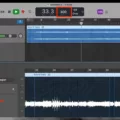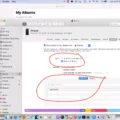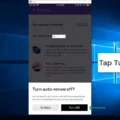ICloud is a cloud storage service provided by Apple that allows users to store and access various types of data, including photos, videos, documents, and more. It offers seamless integration across Apple devices, making it easy to access and share your files across different devices.
One common issue that users may encounter is slow upload speeds when trying to upload videos to iCloud. This can be frustrating, especially if you have a large video file that you want to backup or share with others. In such cases, it’s important to troubleshoot the problem and find a solution.
Before diving into the troubleshooting steps, it’s worth checking the speed and reliability of your internet connection. Slow upload speeds may be due to a poor internet connection, so it’s essential to ensure that your internet service provider is delivering the speeds you are paying for. You can test your internet speed for free using various websites available online.
Assuming that your internet connection is stable and fast, the next step is to restart your iOS device. Often, a simple restart can resolve many software-related issues on iPhones or iPads. To restart your device, press and hold the power button until the power slider appears on the screen. Slide it to power off the device, wait for a few seconds, and then press the power button again to turn it back on.
Once your device has restarted, make sure that you have iCloud Photos enabled in the device settings. To do this, go to Settings, then tap on your name, followed by iCloud. From there, select Photos and ensure that iCloud Photos is turned on. This will allow your videos to be uploaded to iCloud.
Additionally, ensure that you have enough storage space available on your iCloud account. If your storage is full, you may need to free up space by deleting unnecessary files or consider upgrading your iCloud storage plan.
If you’re still experiencing issues with video uploads to iCloud, you can try uploading the videos using a different internet connection. This could be from a different Wi-Fi network or using cellular data if available. Sometimes, the problem may be specific to your home network, so testing with an alternative connection can help identify the issue.
It’s important to note that uploading videos to iCloud can take some time, especially if you have a large file or a slow internet connection. The transfer process can take anywhere from a few minutes to several hours, depending on various factors. If your video upload is taking longer than expected, it’s best to be patient and let the process complete.
If you’re facing slow upload speeds when uploading videos to iCloud, it’s essential to check the speed and reliability of your internet connection. Restarting your iOS device and ensuring that iCloud Photos is enabled can also help resolve the issue. Additionally, having enough storage space available on your iCloud account is crucial. If the problem persists, try uploading the videos using a different internet connection. Remember that video uploads to iCloud can take time, so patience is key.

Why Is ICloud Taking So Long To Upload A Video?
There could be several reasons why iCloud is taking a long time to upload a video. It’s important to understand that the upload speed of your iCloud service is dependent on various factors. Here are some possible explanations for the slow upload speed:
1. Internet Connection: The speed and reliability of your internet connection play a significant role in the upload process. If your internet connection is slow or unstable, it can result in slow iCloud uploads. Consider performing an internet speed test to assess the actual speed you are getting.
2. File Size: The size of the video you are trying to upload can impact the upload time. Larger files take longer to transfer over the internet, especially if your internet connection has limited upload bandwidth. Videos with higher resolution or longer durations tend to have larger file sizes.
3. Network Congestion: During peak usage hours, when many users are online, your internet service provider’s network may become congested. This congestion can cause slower upload speeds. Try uploading your video at a time when network traffic is generally lower, such as late at night or early in the morning.
4. iCloud Server Issues: Occasionally, iCloud servers may experience technical difficulties or high traffic, leading to slower upload speeds. In such cases, there is little you can do except wait for the issue to be resolved on Apple’s end.
5. Other Devices or Applications: If you have multiple devices or applications using your internet connection simultaneously, it can reduce the available bandwidth for iCloud uploads. Close any unnecessary applications or pause other uploads/downloads to prioritize iCloud.
To improve the upload speed for your iCloud videos, you can try the following:
– Upgrade your internet plan to a higher speed package offered by your internet service provider.
– Connect your device directly to the router using an Ethernet cable for a more stable and faster connection.
– Compress the video file to reduce its size before uploading. There are various video compression tools available online.
– Ensure that your device is running the latest software updates, as these updates often include improvements for cloud services like iCloud.
Remember, the actual upload speed you experience may vary due to factors beyond your control. If slow upload speeds persist despite trying these suggestions, consider contacting Apple Support for further assistance.
Why Aren’t Some Videos Uploading To ICloud?
There can be several reasons why some videos are not uploading to iCloud. Here are some possible causes:
1. Insufficient iCloud storage: If your iCloud storage is full or nearing its limit, you may not be able to upload new videos. Check your iCloud storage settings to ensure you have enough space for the videos you want to upload.
2. Slow or unstable internet connection: Uploading videos to iCloud requires a stable and fast internet connection. If your internet connection is slow or keeps disconnecting, it may prevent the videos from uploading. Make sure you have a strong and stable internet connection before attempting to upload the videos.
3. Video format compatibility: iCloud supports a variety of video formats, but there may be certain formats that are not compatible. Check if the videos you are trying to upload are in a supported format. If not, you may need to convert them to a compatible format before uploading.
4. Large file size: If the videos you are trying to upload are very large in size, it may take longer to upload or fail altogether. iCloud has certain limitations on file size, so ensure that your videos are within the supported limits.
5. Software or app issues: Sometimes, software glitches or issues with the iCloud app on your iOS device can prevent videos from uploading. Ensure that you have the latest version of iOS and the iCloud app installed. If the issue persists, try restarting your device or reinstalling the iCloud app.
6. Permissions and settings: Check the privacy and iCloud settings on your device to make sure that the videos are allowed to be uploaded to iCloud. Also, ensure that you have enabled the iCloud Photos or iCloud Drive feature for video uploads.
If none of the above solutions work, you may want to contact Apple Support for further assistance. They can help troubleshoot the issue and provide specific guidance based on your device and software configuration.
How Do I Force A Video To Upload To ICloud?
To force a video to upload to iCloud from your iPhone, follow these steps:
1. Ensure iCloud Photos is enabled: Open the Settings app on your iPhone, tap on your name at the top, select “iCloud,” and then tap on “Photos.” Make sure the toggle switch for “iCloud Photos” is turned on.
2. Check if the video is in the Photos app: Open the Photos app on your iPhone and locate the video you want to upload to iCloud. If it’s not there, ensure that the video is saved in the Photos app by using the Camera app to record or import the video directly into the Photos app.
3. Verify available iCloud storage: Confirm that you have enough iCloud storage space to hold the video. To check this, go to Settings, tap on your name, select “iCloud,” and then tap on “Manage Storage.” Check the available space and consider upgrading your iCloud storage plan if necessary.
4. Check your internet connection: Ensure you have a stable and reliable internet connection, as uploading videos to iCloud requires an internet connection. Verify that you have a good upload speed by conducting a speed test using a service like Ookla Speedtest.
Once you have confirmed these steps, your video should automatically start uploading to iCloud. Keep in mind that larger videos may take longer to upload, especially if you have a slower internet connection. You can monitor the progress of the upload in the Photos app by looking at the “Uploading” section in the “For You” tab.
Conclusion
ICloud is a valuable tool for iPhone and iPad users that allows them to store and access their data across multiple devices. It provides a convenient way to back up and sync important files, including photos and videos, to ensure they are always accessible and protected.
However, it is important to note that the speed and reliability of iCloud uploads are dependent on the quality of your internet connection. If you are experiencing slow upload speeds, it is recommended to check the speed and reliability of your internet service provider. If necessary, consider switching to a provider that offers faster and more consistent speeds.
Additionally, it is crucial to ensure that you have enough iCloud storage available to accommodate your videos and other files. If you are running out of storage, you may need to upgrade your iCloud storage plan or delete unnecessary files to free up space.
ICloud is a convenient and effective solution for managing and accessing your data across multiple devices. By following the tips mentioned above, you can optimize your iCloud experience and ensure that your videos and other important files are securely stored and easily accessible.








